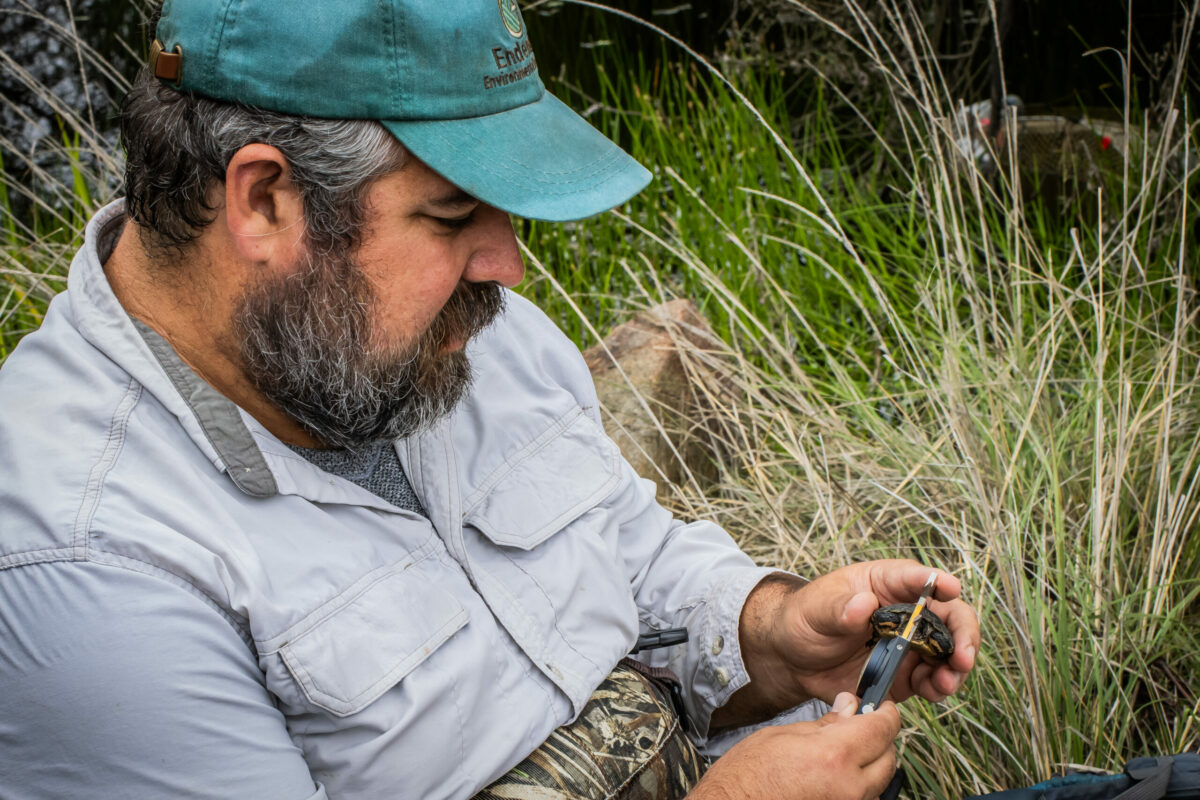
Endemic Environmental Services, a Fullerton-based environmental consultant, is making headway in its efforts to preserve Orange County’s diverse wildlife and habitats.
The organization provides services to cities and developers to help them comply with wildlife laws and regulations.
California is one the world’s 36 biodiversity hot spots, making it an environment ripe with opportunity for wildlife conservationists, according to Endemic CEO Barry Nerhus.
“Orange County has one of the densest human populations in the state with the most endangered species,” Nerhus told the Business Journal.
One of the largest issues environmental consultants are currently facing is climate change, according to Nerhus.
Natural disasters exacerbated by climate change like wildfires put stressors on wildlife and lead to habitat loss.
A large part of the firm’s mission is conducting research to help land managers decide where to invest, and hopefully, conserve more habitats.
Demand from clients—such as developers and municipalities—prompted Endemic’s revenue to double year-over-year in the two years following the pandemic.
The company’s growth is on track to surpass $4 million this year, up 25% from 2022.
“I think having a direct vision helps with retaining clients,” Nerhus said.
Nerhus, who is Mexican American, is also part of the Disadvantaged Business Enterprise program, which helps award more contracts to minority and women-owned businesses.
Saving the Turtles
Nerhus is a wildlife biologist and ecologist with 14 years of experience in the field.
He is an alumnus of the University of California, Irvine and currently teaches a course in wildlife ecology as an adjunct professor.
Nerhus grew up admiring the wildlife in Huntington Beach.
He would go birdwatching or learn more about wetlands at Bolsa Chica State Beach, where he takes his students on field trips to this day.
At UCI, Nerhus started the first Orange County chapter for the Society for Conservation Biology on campus.
Nerhus gained experience catching hawks and restoring habitats with mentors such as Peter Bowler, senior lecturer in ecology and evolutionary biology who has now since retired.
“There were 50 people coming to the meetings, but I didn’t realize I was building this network,” Nerhus said.
Nerhus further developed his passion for wildlife while studying the southwestern pond turtle for his master’s degree at California State University, Long Beach.
His first project at CSULB involved restoring about 50 acres of Fairview Park in Costa Mesa.
The 208-acre open space has five different habitats, including wetlands and a forest, that are home to several endangered species.
In 2009, Nerhus came up with the idea for Endemic after doing independent contract work for the U.S. Army Corps of Engineers.
“It started just with me, and now we have over 60 employees statewide,” Nerhus said.
One species of interest to Endemic is the southwestern pond turtle, California’s only native freshwater turtle.
Endemic is supporting the U.S. Fish and Wildlife Services’ (USFWS) push to get both species of the western pond turtle listed as a threatened species, granting them special protection by the federal government.
Endemic’s biologists have been monitoring the declining population of the southwestern species of the turtle in Aliso Creek and plan to publish a manuscript of their findings.
Giving Back
Nerhus is also the founder and president of the nonprofit Institute for Conservation Research and Education (ICRE).
Every year, ICRE gives high school students the chance to gain hands-on experience conducting their own ecological field study.
Nerhus says he initially started the nonprofit to get grants and donations to fund his research, but more importantly, believes that it will engage the community in local conservation projects.
“You got to have community ownership,” Nerhus said. “With the nonprofit bringing awareness to projects, the community will care more to protect it.”
Nerhus has hired from nearby universities, having hired over 10 people from UCI alone.
“I can’t really put my vision in place without having a strong and dependable team,” Nerhus said.
He plans to implement a four-day work week starting next quarter to improve employee work-life balance.
The next step for Endemic is expanding its research to the marine environment.
With the ocean being a major part of Orange County’s ecosystem, Nerhus sees it as an important resource “that needs to be researched and protected.”
The firm will begin offering marine-related services to clients starting next year, Nerhus said.
